Abstract
Nineteenth century views on the interaction between dementia, depressive illness, general paralysis and brain localisation are discussed in the context of a book by A Mairet entitled: Melancholic Dementia. It is shown that by 1883 there was already awareness of the fact that severe affective disorder could lead to cognitive impairment. General paralysis was the commonest diagnosis put forward to account for patients with depression who went on to develop dementia. Patients so diagnosed, however, often recovered and clinical and statistical analysis of Mairet's case histories suggests that some were in fact suffering from depressive pseudodementia. Evidence is marshalled to show that during the 19th century there was wide disagreement concerning the clinical domain, course and even histopathology of general paralysis. This casts doubt on the traditional view that this condition served as "a paradigm" for other psychiatric diseases during this period. It is shown that by the turn of the century these difficulties led to a redefinition of the concept of dementia and to a marked narrowing of the clinical bounds of general paralysis.
Full text
PDF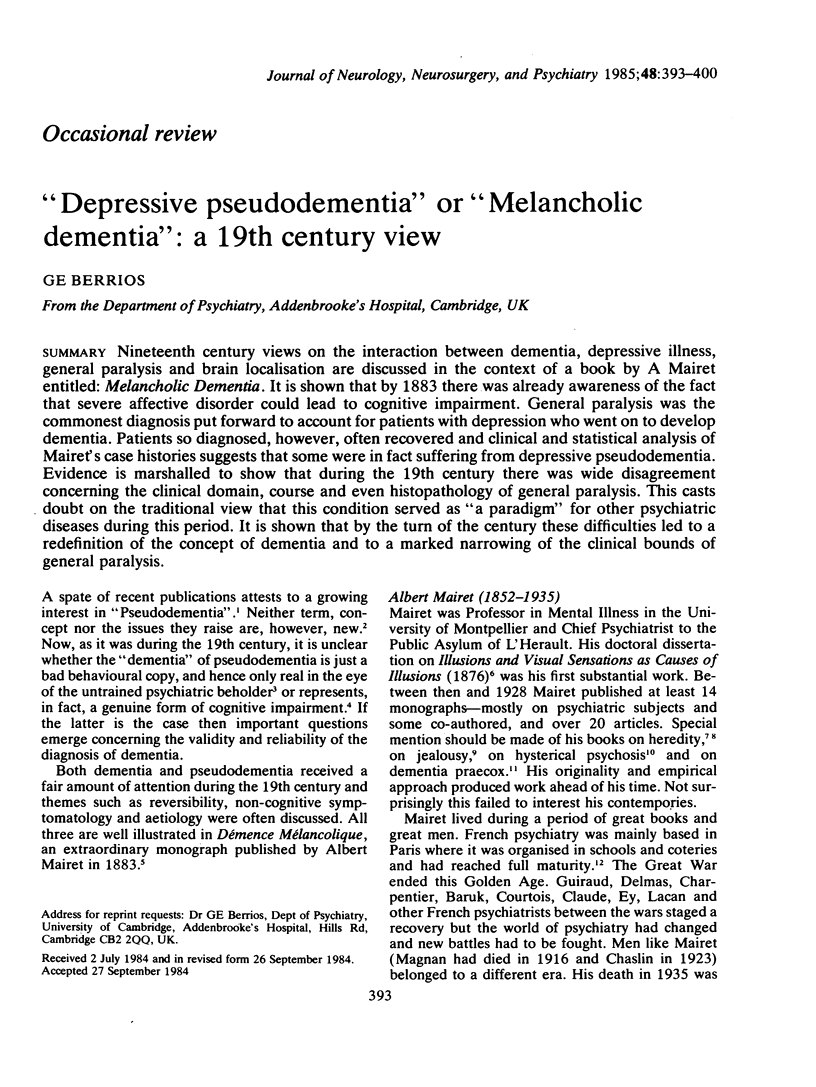
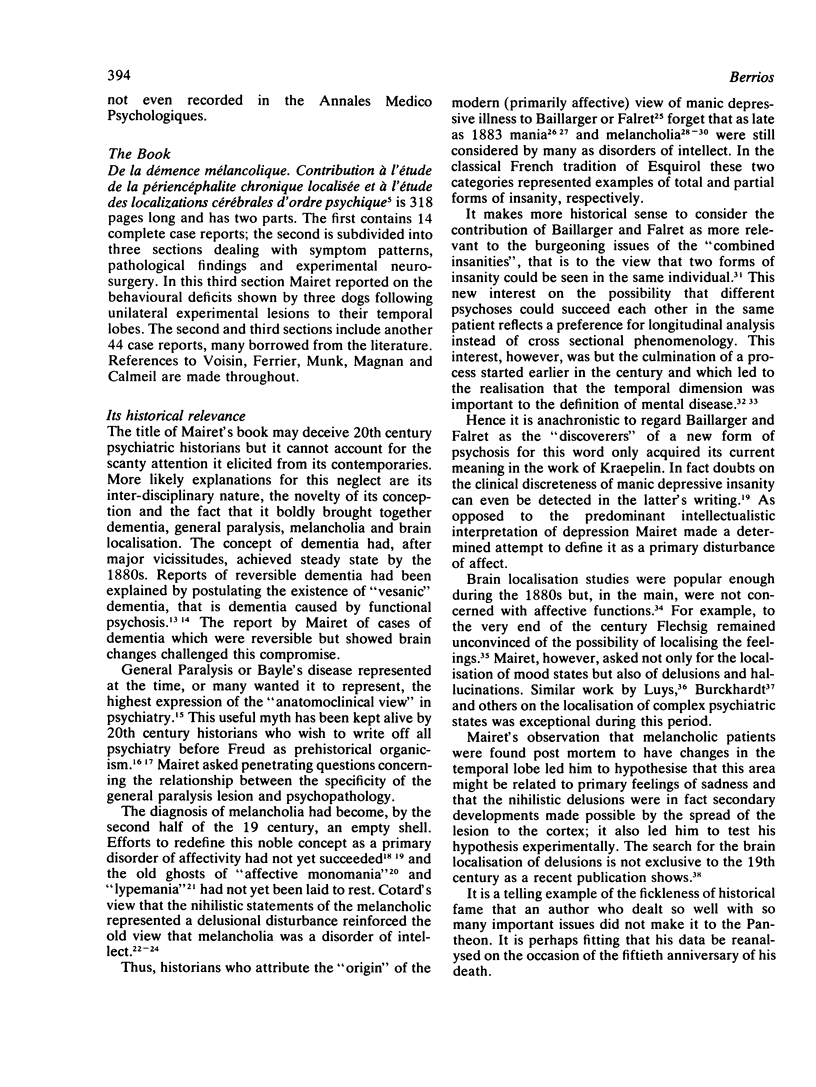
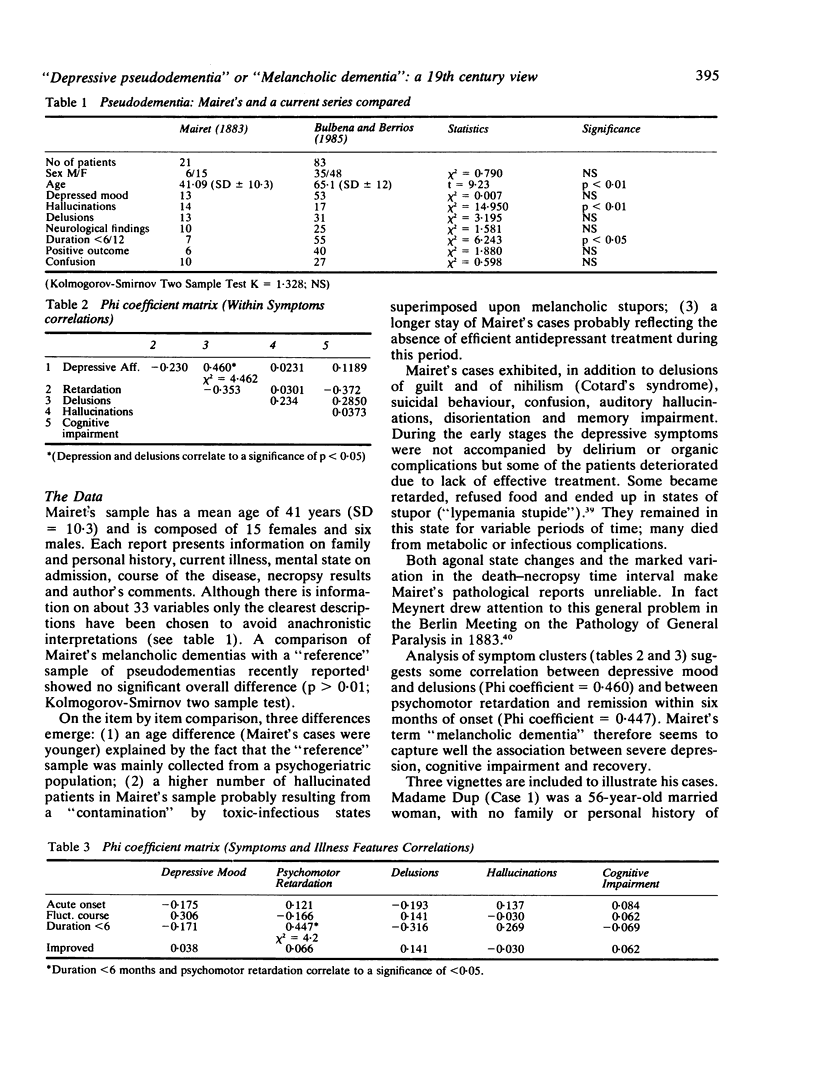
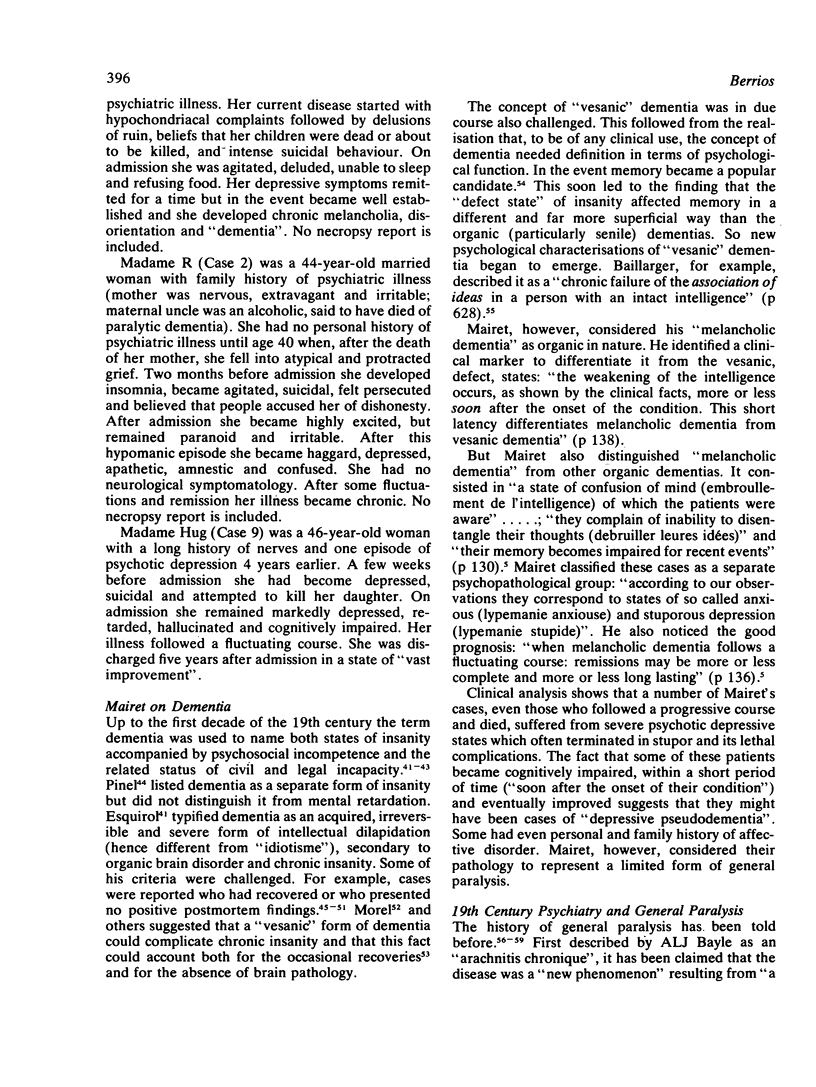
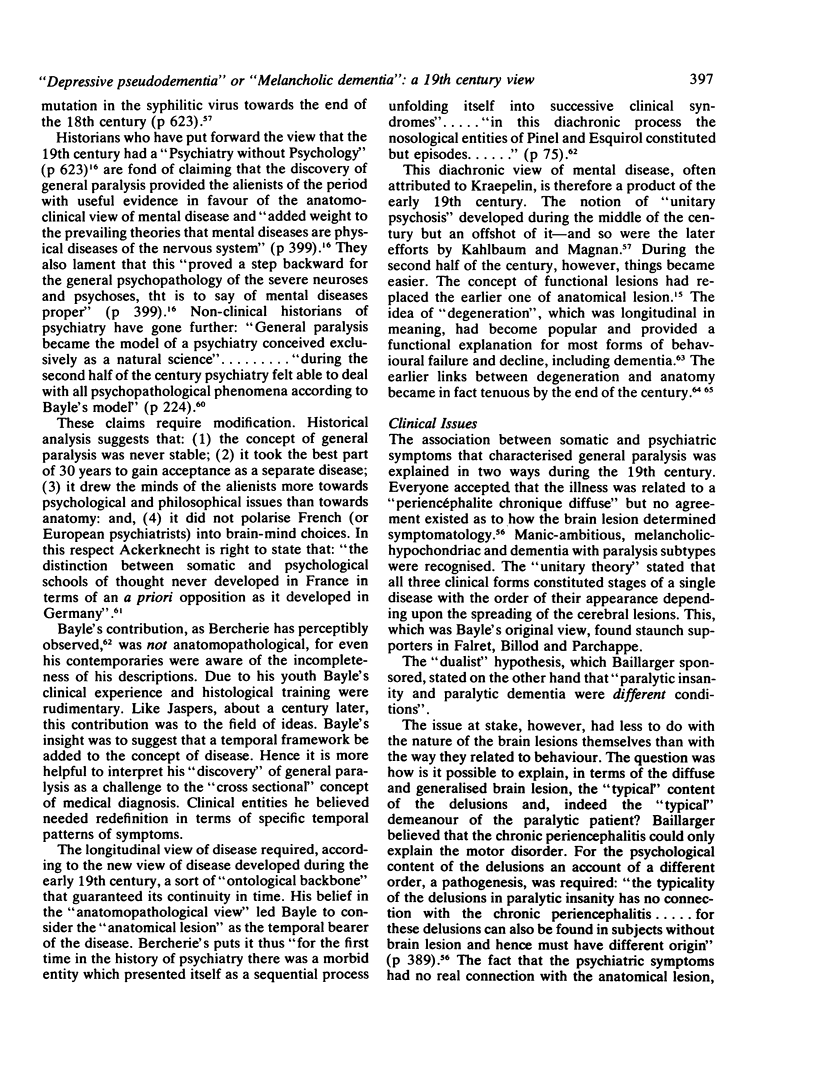
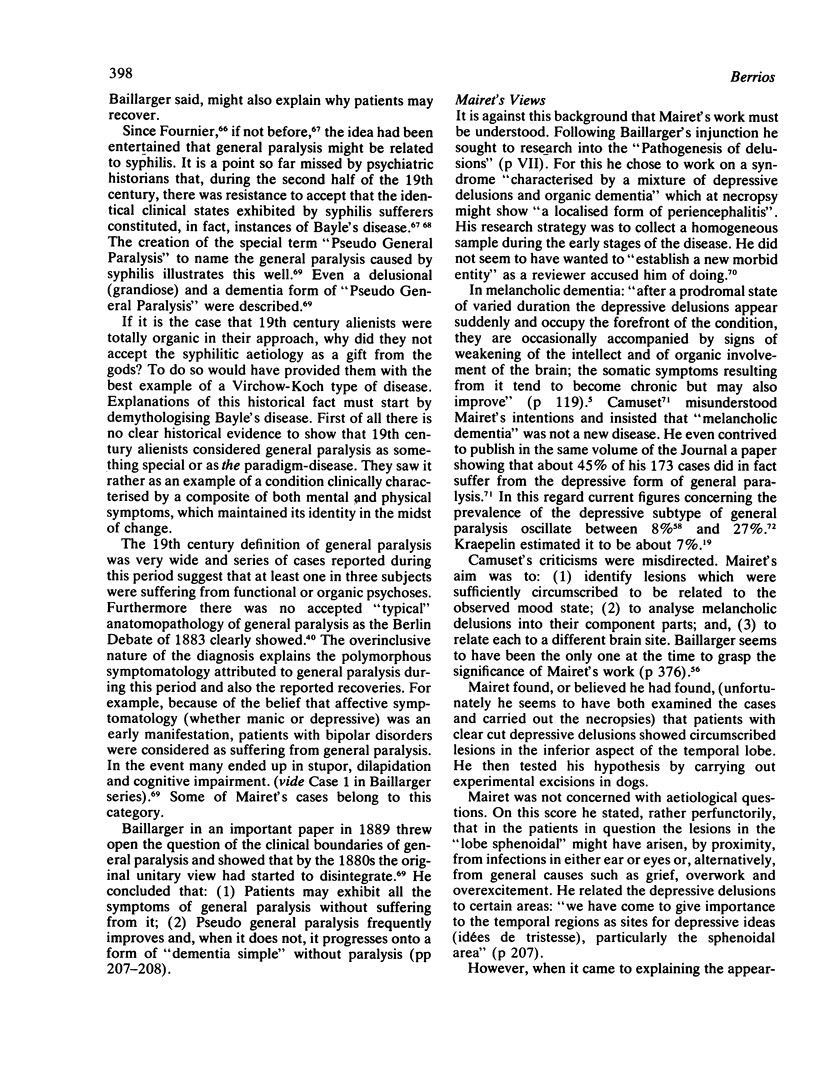
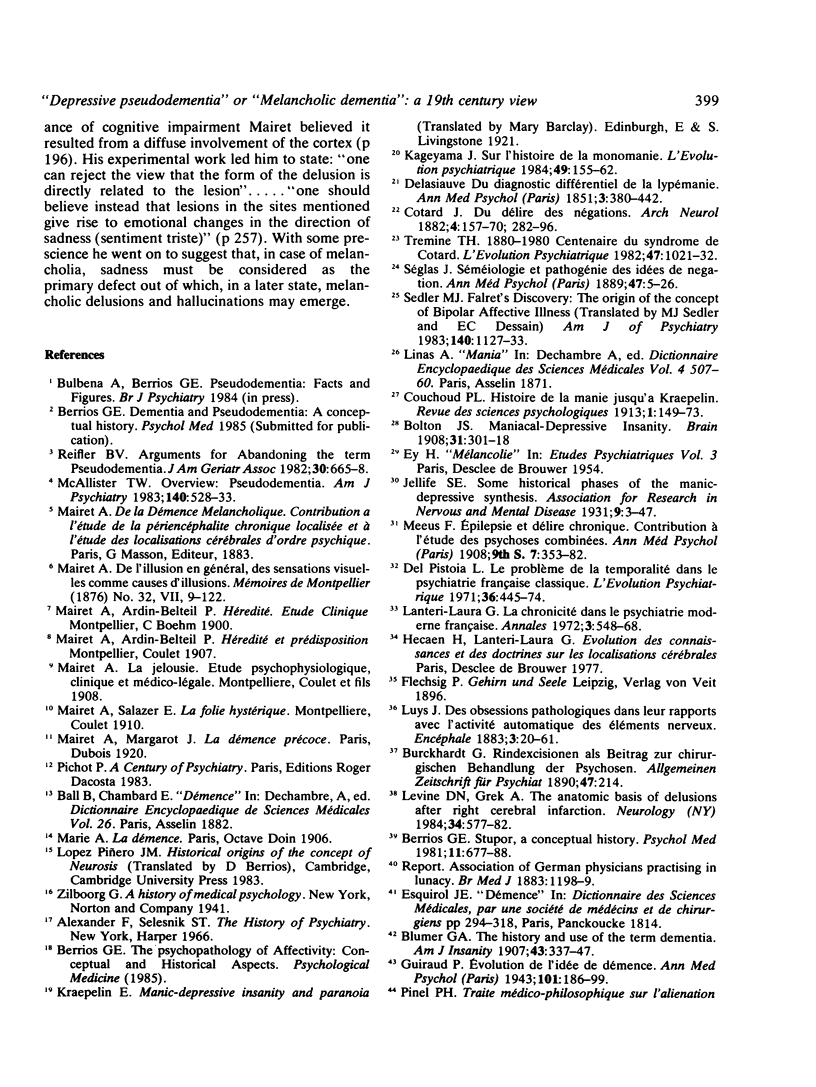
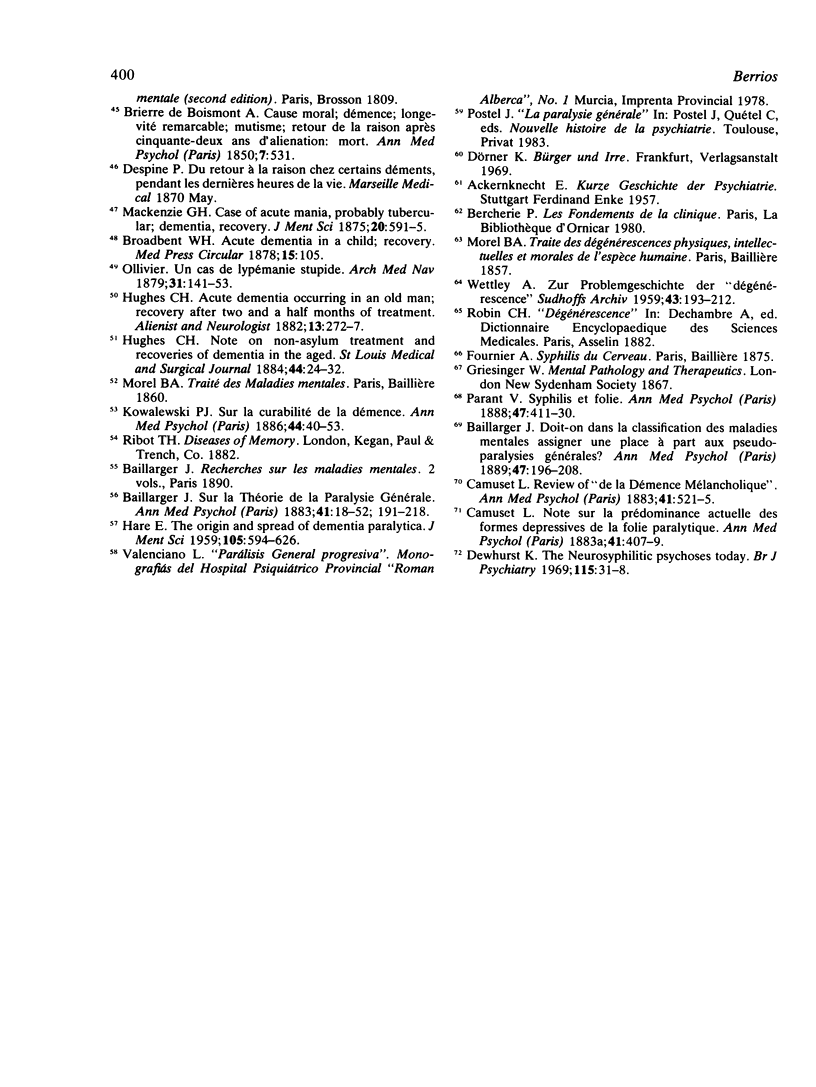
Selected References
These references are in PubMed. This may not be the complete list of references from this article.
- Berrios G. E. Stupor: a conceptual history. Psychol Med. 1981 Nov;11(4):677–688. doi: 10.1017/s0033291700041179. [DOI] [PubMed] [Google Scholar]
- Del Pistoia L. Le problème de la temporalité dans la psychiatrie fancçaise classique. Evol Psychiatr (Paris) 1971 Jul-Sep;36(3):445–474. [PubMed] [Google Scholar]
- Dewhurst K. The neurosyphilitic psychoses today. A survey of 91 cases. Br J Psychiatry. 1969 Jan;115(518):31–38. doi: 10.1192/bjp.115.518.31. [DOI] [PubMed] [Google Scholar]
- HARE E. H. The origin and spread of dementia paralytica. J Ment Sci. 1959 Jul;105:594–626. doi: 10.1192/bjp.105.440.594. [DOI] [PubMed] [Google Scholar]
- Levine D. N., Grek A. The anatomic basis of delusions after right cerebral infarction. Neurology. 1984 May;34(5):577–582. doi: 10.1212/wnl.34.5.577. [DOI] [PubMed] [Google Scholar]
- McAllister T. W. Overview: pseudodementia. Am J Psychiatry. 1983 May;140(5):528–533. doi: 10.1176/ajp.140.5.528. [DOI] [PubMed] [Google Scholar]
- Reifler B. V. Arguments for abandoning the term pseudodementia. J Am Geriatr Soc. 1982 Oct;30(10):665–668. doi: 10.1111/j.1532-5415.1982.tb05067.x. [DOI] [PubMed] [Google Scholar]
- Sedler M. J. Falret's discovery: the origin of the concept of bipolar affective illness. Translated by M. J. Sedler and Eric C. Dessain. Am J Psychiatry. 1983 Sep;140(9):1127–1133. doi: 10.1176/ajp.140.9.1127. [DOI] [PubMed] [Google Scholar]


